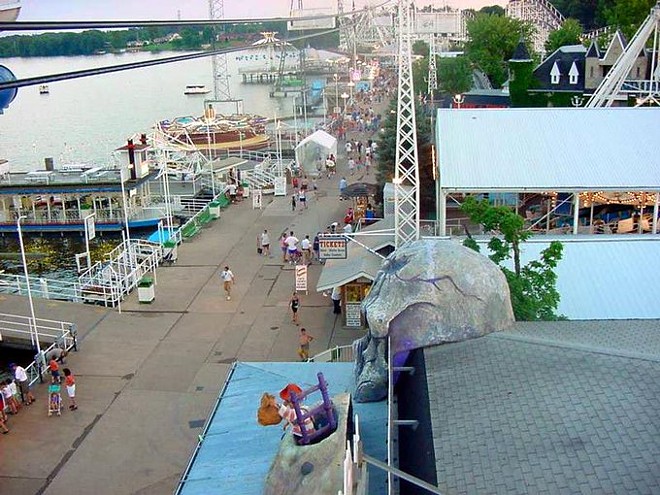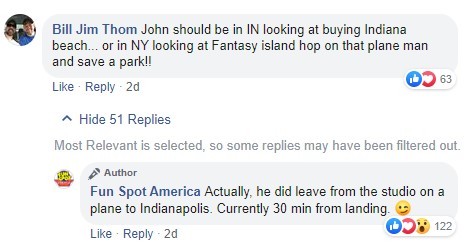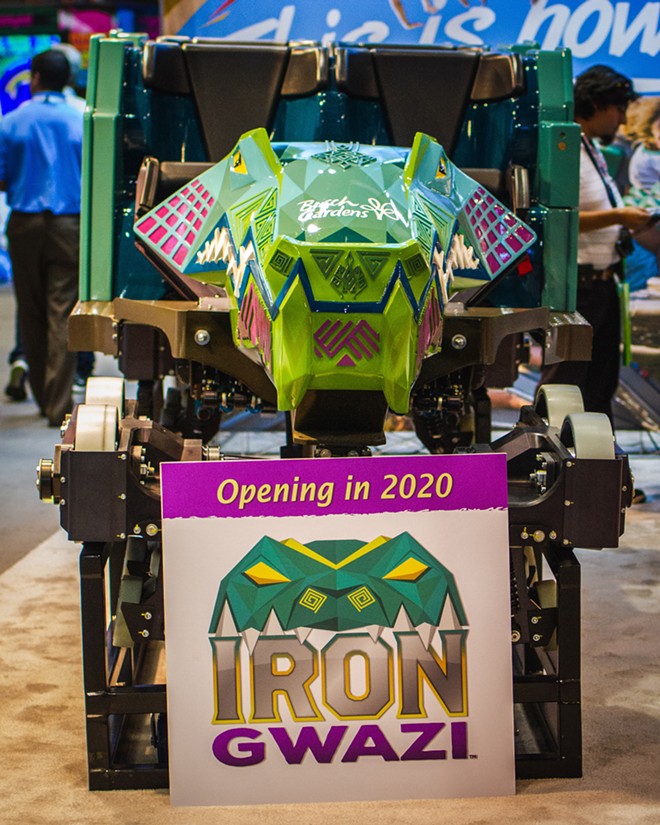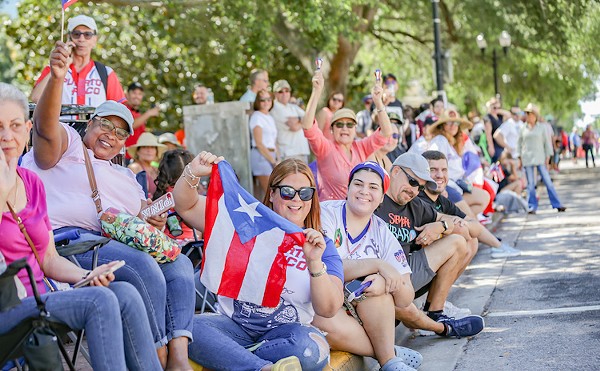By October of last year, it was clear a significant shakeup was coming to America’s amusement park operators. European-based operator Merlin had announced its third U.S.-based Legoland park, and Cedar Fair had just rejected a buyout bid from Six Flags. Then there were rumors that SeaWorld’s largest shareholder was working on a deal that would have seen a merger with Newport Beach, California-based amusement park operator Palace Entertainment.
Palace is one of the smaller, lesser-known amusement park companies in the nation, with most of their parks closer to in scale to Orlando's Fun Spot than to what Floridians typically think of when they hear the term "amusement park." The company has struggled for years in the shadow of America’s much larger park operators, and even today there are rumors that a major announcement may come from them any day.
In 2014, Palace sold off fourteen of its family entertainment centers (FECs) to a new startup in the industry, Apex Parks Group, which was formed by a collective of former Six Flags and Paramount employees and was led by Al Weber Jr., who served as both COO and interim CEO at Six Flags prior to founding the new company.
Like Palace, Apex focuses on micro amusement parks and larger family entertainment centers. The name can be a bit misleading, with only two of the company’s holdings technically being amusement parks. The others are family entertainment centers that are in between a Dave & Busters style venue and a Fun Spot like park. That is until last week when the company abruptly closed both of their amusement parks and two of the FECs.The plan is nearly identical to the one that Six Flags has successfully used for years.
tweet this
The move sent immediate shockwaves through the industry, with many quick to send their condolences regarding the closure of Indiana Beach, a unique nearly century-old boardwalk-style park that’s about 90 minutes away from Indianapolis. Indiana Beach and the other amusement park that Apex closed, Fantasy Island in New York, weren’t part of the initial 14 venues purchased from Palace but were separate purchases in 2015 and 2016, respectively.
A potential buyer for the iconic Indiana Beach park quickly emerged as Orlando-based Fun Spot America confirmed via Facebook that their owners were currently on their way to Indiana. The post went viral throughout the Midwest, with hundreds of fans of the lakefront park taking to social media begging Fun Spot to purchase and reopen the park.
On Monday afternoon, Fun Spot confirmed on its social media accounts that they had viewed the park, but decided not to move forward with purchasing and reopening it.
“To the many fans of Indiana Beach,
We are honored to have been asked by so many loyal Indiana Beach supporters to purchase the park and keep the legacy of great rides and family memories created by the Spackman family alive. We recently received an invitation to visit the park, review the facilities and attractions at Indiana Beach Boardwalk Resort.
During the past few days, for some, waiting for an answer may have seemed like an eternity. We saw a park with rich history and heritage, that has created memories for generations. Unfortunately purchasing Indiana Beach or any park is not in our current master plans. We are going to pray for the proper owners and operators to become visible so that Indiana Beach may continue to serve their guests and community for many more generations.
We encourage the efforts to have Indiana Beach reopen. It is a treasure that should be allowed to delight families for generations to come. We have been overwhelmed by the outpouring of sincere wishes and wonderful family messages from so many loyal Indiana Beach fans, we are with you in the hope that there is an organization that can share your passion and dreams for the future of Indiana Beach.
-Fun Spot America Theme Parks”
Two industry analysts who spoke with Orlando Weekly both pointed out that the statement by Fun Spot doesn’t explicitly state that the company won’t purchase and move some of the rides from Indiana Beach or the New York-based Fantasy Island park. Both parks have roller coasters that would fit in well with the lineup at the three Fun Spot parks, and Fun Spot has been looking at new additions for its Atlanta park. That park, which was previously known as Fun Junction USA prior to Fun Spot purchasing it in 2017, saw multiple recent additions from another recently closed amusement park, Ohio’s Coney Island. That venue will be reverting to only being a water park when it reopens this season.
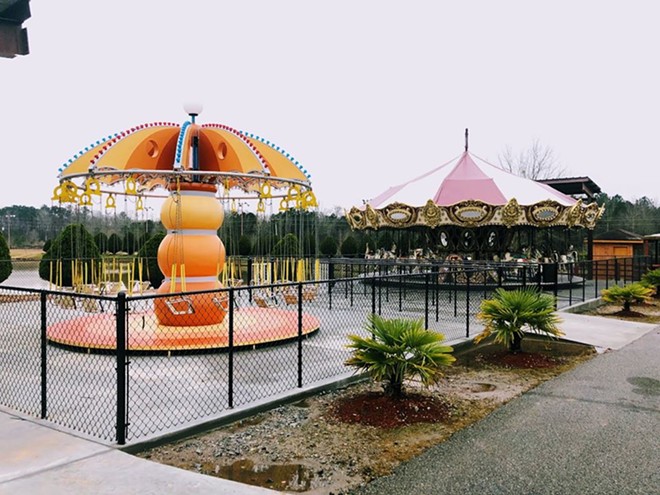
With Apex leasing the site and with the rumored poor sales the park saw, it’s doubtful the park will ever reopen. Last year, Apex’s parent company, The Carlyle Group, purchased three of Latin America’s largest FEC operators, adding more than 100 family entertainment centers to Carlyle’s portfolio. Interestingly, they didn’t merge these acquisitions with Apex, choosing to keep them separate. This may point to even more uncertainty for Apex in the near future.
On its own, the Apex closures look like a couple of smaller hyper-regional parks that just could make it in today’s world of cheap travel and even less expensive entertainment. But the strategy that Apex embraced since its new CEO John Fitzgerald rolled out when he came aboard in 2016 in noteworthy for its close resemblance to the one that SeaWorld is now going all-in on. It is also has exceptionally similar to one that Six Flags has used for years.
Fitzgerald, a former Six Flags Great Adventure park president who took the position at Apex after Weber passed away, was quick to add multiple events to the Apex’s various parks and focus on attracting locals to the two amusement parks with deals on annual passes, meal plans, and other season-long offerings. In 2018, he was celebrating the various events that had been introduced and rolled out a new nationwide season pass program and all-season dining at both of the amusement parks. At the time he is quoted saying, "By creating fun, new events, we are enhancing the value of an Apex Season Pass and giving guests another reason to visit their favorite family entertainment venue."
The plan is nearly identical to the one that Six Flags has successfully used for years. At Six Flags, almost every one of the company’s 15 regional theme parks sees some type of new ride investment each year, and the park’s calendars are filled with numerous events. In recent years Six Flags has focused almost exclusively on annual passes, so much that single-day tickets are nearly impossible to find on its website with visitors having to close and scroll past multiple ads selling annual passes just to see the area to purchase a single-day admission ticket.
In an earnings call last week, Six Flags’ new CEO Mike Spanos acknowledge that the company needed to work on single-day admissions, telling shareholders, “our focus needs to be on our base business, which you raised. And here we have a good business. As I said, I just think there's two fundamental things we got to focus on our base business. As we've done well with Active Passes, we need to ensure we're growing our single-day tickets, which is very important to our total attendance and to our total revenue.”
That same call saw Six Flags reporting a 2019 net income drop of 35 percent year-over-year, per capita spending declines, and a fourth-quarter of 2019 that caused an $11 million net loss with a 3 percent drop in attendance. This was despite the company adding a dozen new thrill rides across its parks last year.
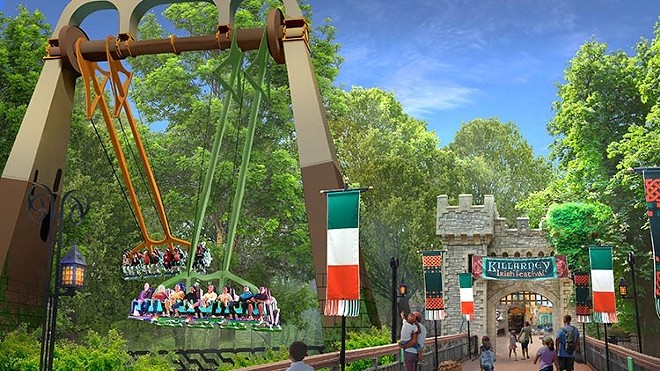
“Our strategic focus on new rides, attractions and events in every park every year, improved marketing, communications and pricing strategies and a relentless focus on cost efficiency initiatives has resulted in significant increases in attendance, revenue, and Adjusted EBITDA over the last two years.” He continued, "With respect to 2020, we could not be more excited about our ride, attraction and event line up – it will be our strongest line up ever."
Annual pass numbers were up in 2019, as was per capita spending. Over the past two years, SeaWorld has seen attendance growth of 1.8 million visits. Executives did point to increased labor costs by adding multiple new rides but balanced this by stating they continue to look at places to cut costs.
Also noteworthy in the call was the numerous mentions of the company’s animal rescue efforts and investor concerns related to coronavirus, the latter of which executives tried to downplay. SeaWorld CFO Marc Swanson stated that while “there are events out there that can threaten us and we recognize that,” so far, the company has seen no noticeable impact related to coronavirus and doesn’t have a large number of Chinese visitors to its parks.So far, the strategy of focusing on thrill rides, seasonal events and annual passes has been working for SeaWorld.
tweet this
SeaWorld has surpassed consensus earnings per share estimates three of the past four quarters. The difference between SeaWorld and Six Flags is Six Flags had done the ride and events plan for numerous years while SeaWorld unveiled the plan just three years ago in 2017 under then CEO Joel Manby. This means SeaWorld still likely has the potential for growth with this strategy, but for how much longer is still unknown. One former SeaWorld executive who spoke with Orlando Weekly after the earnings call expressed concern that the company was too reliant upon this singular plan. With 2021 plans already moving forward at many of the company’s parks and with earnings continuing to improve, it is obvious why SeaWorld executives continue with the strategy despite a similar one failing for not one but two of America’s other amusement park companies.
For now, there are no indications that Apex plans to close its Boomers! park in South Florida nor any confirmed plans to move any of the Apex rides to other parks, including to Fun Spot America.
Stay on top of Orlando news and views. Sign up for our weekly Headlines newsletter.

